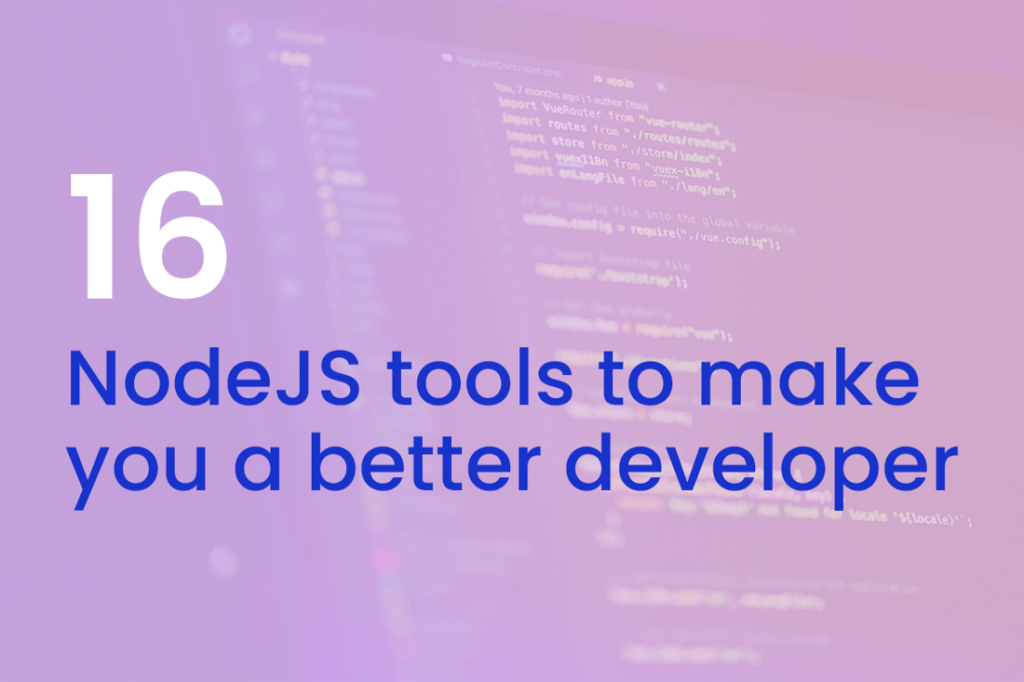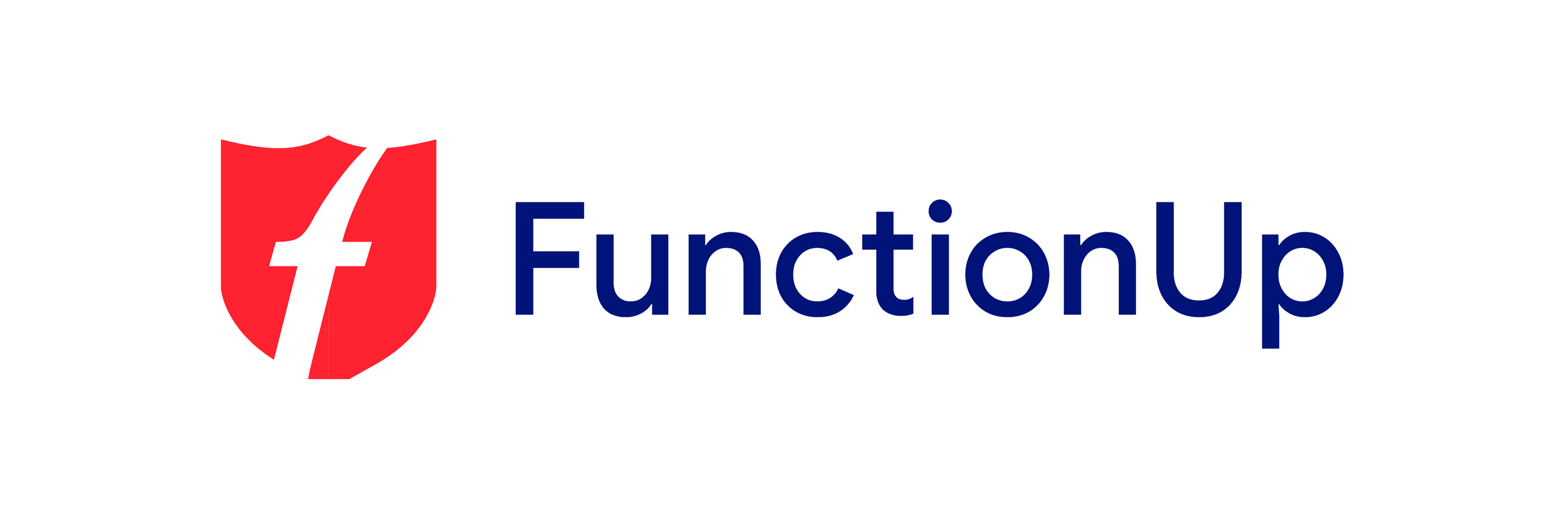
NodeJS is growing in popularity since its inception.
- 30 million websites use NodeJS
- Back in 2018, NodeJS hit 1 billion downloads
- Amazon, eBay, LinkedIn, Netflix, Reddit, PayPal, and Tumblr use NodeJS
- NodeJS reduces the loading time by 50-60%
- NodeJS reduces development costs by 58%
Looking at the speed at which NodeJS is becoming popular, it becomes evident for NodeJS developers to keep honing their skills and stay up-to-date on the latest NodeJS tools and technologies to make you a better developer.
And, we’ve got 16 NodeJS tools for you to get started right away.
Top NodeJS tools to make you a better developer
Let’s look at 16 top NodeJS tools for development in no particular order.
Babel is used to generating backward-compatible JavaScript lines of codes for older JavaScript engines. The best part is that it can run ECMAScript 2015+ (ES6+) code. In addition, Babel is an open-source JavaScript development tool that allows you to use multiple programming languages.
Using Babel, developers can use the latest JavaScript features by converting their source code to a form that web browsers can understand. Moreover, Babel plugins convert non-standard syntax into a backward-compatible version. In addition, it can automatically inject polyfills offered by core JS for support features that are entirely lacking in JavaScript environments. It is one of the best NodeJS tools to use
2. BlueBirdJS
BlueBird JS makes writing NodeJS applications even more accessible. It is a JavaScript Promise library with all the bells and whistles. With Bluebird, you may “promisify” other Node modules to use them asynchronously.
Promisify is a concept that comes in use for callback functions. This idea ensures that every call to a callback function returns some result.
Moreover, all the functions in the node module will automatically change to return a value if we Promisify the node module. Another great NodeJS tool to use.
3. BroccoliJS
Broccoli is a JavaScript build management tool. It creates a distributable version of your application assets that you can run in a browser. BroccoliJS uses a modular plugin architecture to do configuration in JavaScript.
This build tool organizes the build pipeline for storing subdirectories and files using a tree structure (a set of nodes & plugins). You can also host your assets on the local HTTP server provided by Broccoli’s built-in server for front-end development. This tool will save a lot of time and boost the productivity of your development team. Another great NodeJS tool to use.
4. ChaiJS
Chai is a NodeJS assertion framework for TDD and BDD that you can use in conjunction with virtually any other type of testing tool. Chai will also help you verify the asynchronous test results. Moreover, you can use NodeJS or a web browser to run Chai, with its many plugins serving as an assertion tool.
5. ElectrodeJS
The best thing about ElectrodeJS is that both React and NodeJS programs run on it, making it a versatile platform. In addition, Electrode Explorer and Electrify are part of the best practices, standardized frameworks, and current technologies. These tools allow you to see your electrode’s module tree, documentation, and how the io + Webpack project bundles are brought together.
6. ExpressJS
ExpressJS is an essential framework for NodeJS web apps because of its simplicity.
Using NodeJS and ExpressJS, you may create server-side JavaScript applications. Moreover, you can use NodeJS to develop the server-side program and ExpressJS to serve the app on your website.
7. Keystone
Keystone is one of the NodeJS tools for those who want to learn and develop applications using NodeJS. It serves NodeJS database-driven web applications and APIs. The tool’s most impressive feature is its user-friendly design, making it easy to manage your website.
8. KoaJS
The minimalist and modern NodeJS tool, Koajs, is a server-side framework that runs on NodeJS. The backend framework is significantly lighter than any other NodeJS framework. It is used extensively to build APIs and apps that remain relevant for a long time.
In addition, you can quickly create APIs that connect to other front-end frameworks and apps that render server-side views. In addition, you can add modules to this framework to make it more versatile.
9. Meteor
MeteorJS is a JavaScript prototyping and cross-platform coding framework (Web, Android, iOS) built on NodeJS. It has MongoDB integration and can be used with any JavaScript-based UI widgets. Even Y Combinator, the world’s most renowned startup accelerator, endorses this NodeJS development tool.
10. MochaJS
It is a popular NodeJS-based JS test framework widely used by NodeJS developers to run tests. This framework is excellent since you can run it simultaneously on NodeJS and browsers. In addition, it has several advantages, especially when sharing code and developing modules.
MochaJS is an excellent choice for behavior-driven and test-driven development. In addition, you can use it for unit and integration testing (BDD and TDD).
11. PassportJS
PassportJS is middleware, simple, and discreet authentication for NodeJS authentication. It offers over 300 options for authenticating your app, including the username and password model, logins, etc.
12. PM2
PM2 is a process manager used in NodeJS application development. It has comprehensive load balancing, application cluster, hot reload log management, container integration, and monitoring of critical metrics, among other features. This NodeJS tool will help you eliminate most challenges connected with running NodeJS apps inside Docker containers.
13. SinonJS
For testing JavaScript, you can use SinonJS, a stand-alone framework. Compatible with any testing framework, it’s compatible with stubs, spies, and mocks. In addition, it’s cross-browser compatible and runs on NodeJS on the server.
14. Socket.io
Socket.io is a framework for real-time, bi-directional communication based on event-driven interactions between two computers or devices. The huge plus of this NodeJS tool is that it performs well on any device or platform. It’s ideal for chat apps and is favored by large corporations like Microsoft and small startups like Zendesk and Trello.
15. Webpack
A module bundler known as Webpack takes modules and creates static assets to represent those modules. To deploy a dynamic application to your server, you need to bundle it into static files. Therefore, it helps you to minimize the initial loading time of your application significantly.
Webpack’s code-splitting ability allows you to break up your codebase into smaller parts. For example, if you want to use Webpack, you’ll have to use JavaScript natively. You can, however, use loaders to convert additional resources written in CSS, JSX, SAAS, etc., to JavaScript.
You can also enhance the web pack’s functionality by adding plugins and loaders with their configurations. The web bundle also includes an innovative method for analyzing any third-party library.
16. WebStorm IDE
The WebStorm IDE is a fantastic JavaScript IDE. It is lightweight and has everything required for developing client-side and server-side NodeJS apps. In addition, it’s a JS-specific tool; thus, it’s an excellent choice if you’re solely creating JavaScript/HTML/CSS. You can also debug, track, and conduct unit testing.
Conclusion
At this point, it is evident that using NodeJS tools can make you a better developer. If not better, it will make your NodeJS development journey a little (or a lot!) easier.
At FunctionUp we train candidates in NodeJS and several other technologies and help them getting placed in top companies across the globe at ₹0 Upfront cost. For more info, visit us here.
